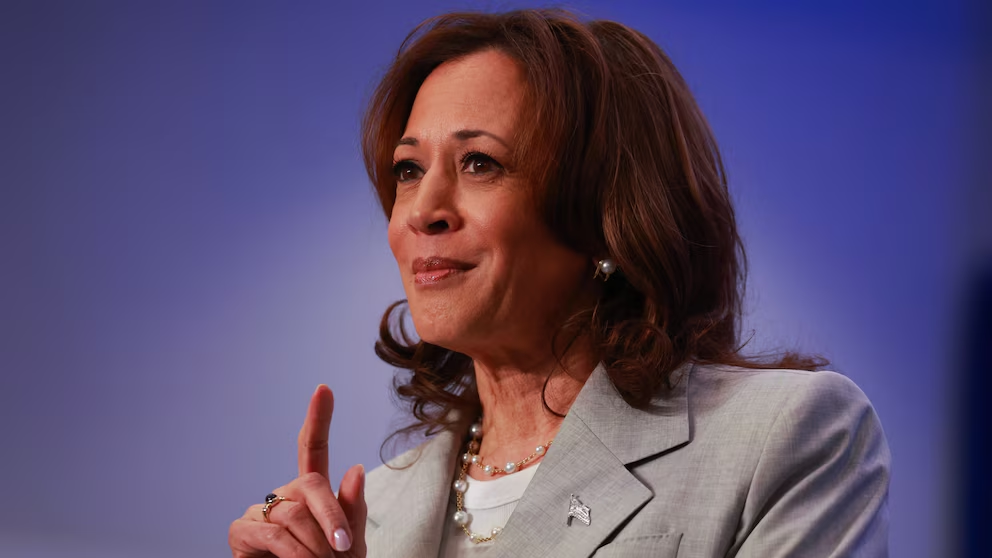In a significant move that could improve the financial health of millions of Americans, the Biden administration has proposed a rule to ban medical debt from credit reports.
Announced by Vice President Kamala Harris and Consumer Financial Protection Bureau (CFPB) Director Rohit Chopra, the rule aims to address the widespread issue of medical debt impacting credit scores and consequently, financial opportunities.
“This is going to be an enormous relief to so many people battling bills when it comes to hospital visits,” Chopra told ABC News. The rule, which has been in development since September, could go into effect early next year.
This initiative is part of President Biden’s broader effort to show Americans that his administration is actively working to lower costs, a key concern as the election approaches.
Chopra explained that medical debt on credit reports does not accurately predict whether someone will repay other types of loans. “Our research shows that medical bills on your credit report aren’t even predictive of whether you’ll repay another type of loan.
That means people’s credit scores are being unjustly and inappropriately harmed by this practice,” he said.
The CFPB estimates that the new rule could enable 22,000 more people to qualify for safe mortgages annually. This change could benefit lenders as well, allowing them to approve more borrowers with improved credit scores.
Major credit report companies like Equifax, TransUnion, and Experian have already started to limit the use of certain medical debts in their calculations. Similarly, FICO and VantageScore have adjusted their models to reduce the impact of medical debt.
Despite these efforts, around 15 million Americans still struggle with $49 billion in medical debt, according to the CFPB. This new rule aims to eliminate the negative impact of medical debt on credit scores across all credit reporting in the U.S.
Medical debt affects two in every five Americans, with many holding debts in the thousands, according to the health policy research organization KFF. Once these debts go to collections, credit scores drop, making it difficult to secure loans for cars, homes, or small businesses, often leading to a cycle of financial hardship.
“Medical debt makes it more difficult for millions of Americans to be approved for a car loan, a home loan, or small business loan, all of which in turn makes it more difficult to just get by, much less get ahead. And that is simply not fair,” Vice President Harris said during a call with reporters.
Lexi Coburn, 33, knows this struggle well. She accumulated medical debt starting in 2013 when she was uninsured and had to visit the emergency room.
Her $425 bill was beyond her means, and her debt eventually grew to over $2,300 due to additional medical expenses. Coburn’s low credit score due to medical debt prevented her from securing a reasonable car loan, which was essential for her job.
“I needed to be able to get transportation to get to my job,” Coburn said. Her experience highlights the financial domino effect caused by medical debt, where debt makes it harder to improve one’s financial situation, leading to more debt.
According to the source, the new CFPB rule also aims to address issues with incorrect, confusing, and complicated medical bills, which often result in prolonged disputes and credit report damage.
“Too often, we see that people are receiving bills that are inaccurate. Many patients are fighting over these bills for months, only to find that it then appears on their credit report,” Chopra noted.
Experts like Matt Notowidigdo, a professor at the University of Chicago’s Booth School of Business, support the rule, pointing out the low success rate of collecting medical debt. He suggests that addressing the root cause of medical debt by improving access to adequate healthcare coverage is crucial.
Linda Davis, a 61-year-old from Grand Rapids, Michigan, exemplifies the struggle with medical debt. Despite having Medicare, she has between $45,000 and $50,000 in medical debt due to chronic health issues. Davis’s situation underscores the inadequacy of current health coverage and the crippling effect of medical debt.
Critics of the rule, like Ge Bai from Johns Hopkins University, warn that hospitals may respond by demanding upfront payments, which could hurt low-income patients.
Industry groups, such as the Association of Credit and Collection Professionals, echo these concerns, fearing that the rule could raise medical costs and limit access to credit and healthcare.
Chopra refutes the idea that the rule will lead to widespread defaults, emphasizing that other penalties for unpaid debts remain. “Those individuals will still be subject to collection actions, lawsuits, and more.
There are plenty of ways that people get penalized for not paying their bills. I just don’t want to see the credit reporting system be weaponized against people who already paid them,” he said.
This proposal marks a significant step towards addressing the pervasive issue of medical debt in the U.S., aiming to create a fairer financial landscape for millions of Americans.
Reference article:
In a sweeping change, Biden administration to ban medical debt from credit reports
Read more news:
